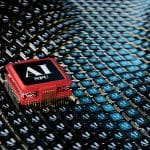Introduction
Artificial Intelligence (AI) has come a long way since its inception, transforming how we interact with technology. The rise of computational agents, a core component of AI, is a testament to this progress. But what exactly are these agents, and how do they form the bedrock of AI systems? Let’s dive into the world of AI and computational agents, exploring their foundations, applications, and future challenges.
Understanding Artificial Intelligence
To grasp the essence of computational agents, we first need to understand AI. At its core, AI is about creating systems that can perform tasks that normally require human intelligence. This includes problem-solving, learning, and adapting to new information.
Defining Computational Agents
Computational agents are essentially systems or entities designed to perform tasks autonomously. They can sense their environment, make decisions, and act upon those decisions to achieve specific goals. Think of them as digital workers that can operate independently.
The Evolution of AI
AI didn’t appear overnight. Its evolution can be traced through several stages, each building on the previous one. From simple rule-based systems to complex neural networks, AI’s journey is a fascinating tale of innovation and advancement.
Core Principles of AI
To fully appreciate computational agents, it’s crucial to understand some foundational principles of AI. These principles guide how AI systems are built and how they operate.
1. Machine Learning
Machine learning (ML) is a subset of AI where systems learn from data and improve over time. Rather than being explicitly programmed for each task, ML algorithms analyze data to identify patterns and make predictions or decisions.
2. Neural Networks
Inspired by the human brain, neural networks are a key component of ML. They consist of interconnected nodes (or neurons) that process information in layers. This structure allows neural networks to recognize complex patterns and make sophisticated predictions.
3. Deep Learning
Deep learning, a specialized form of neural networks, involves multiple layers of processing. It’s particularly powerful for handling large volumes of data and is used in applications like image and speech recognition.
Foundations of Computational Agents
Now, let’s delve into what makes computational agents tick. Understanding their foundations will give us insight into how they function and why they’re so effective.
1. Agent Architecture
The architecture of a computational agent refers to its internal structure and how it processes information. This includes its sensors, decision-making components, and actuators. A well-designed architecture allows an agent to interpret data and perform actions effectively.
2. Decision Making
Decision-making is at the heart of a computational agent’s functionality. Agents use algorithms to weigh different options and choose the best course of action based on their goals and available data. This process can be simple or highly complex, depending on the agent’s design.
3. Learning and Adaptation
One of the most exciting aspects of computational agents is their ability to learn and adapt. They can modify their behavior based on new information or changing environments, making them highly versatile and effective in various scenarios.
Applications of Computational Agents
Computational agents are not just theoretical constructs; they have practical applications across multiple fields. Here are a few notable examples:
1. Robotics
Robots equipped with computational agents can perform tasks ranging from assembly line work to complex surgical procedures. These robots can operate autonomously, making real-time decisions and adapting to changes in their environment.
2. Virtual Assistants
Virtual assistants like Siri, Alexa, and Google Assistant are prime examples of computational agents. They help users with tasks such as setting reminders, answering questions, and controlling smart home devices, all through natural language processing.
3. Autonomous Vehicles
Self-driving cars use computational agents to navigate roads, avoid obstacles, and make driving decisions. These vehicles rely on a combination of sensors, decision-making algorithms, and machine learning to operate safely and efficiently.
Challenges and Future Directions
Despite their many advantages, computational agents face several challenges. Addressing these will be crucial for the future development of AI.
1. Ethical Considerations
As computational agents become more advanced, ethical concerns arise. Issues such as privacy, security, and the potential for bias need to be carefully managed to ensure that AI technologies are used responsibly.
2. Technological Limitations
While AI has made significant strides, there are still limitations to overcome. Computational agents need to be further refined to handle more complex tasks and interact more seamlessly with human users.
Conclusion
Computational agents represent a fascinating and rapidly evolving area of artificial intelligence. By understanding their foundations and applications, we can appreciate the incredible potential they hold. As technology continues to advance, these agents will likely play an even greater role in our lives, reshaping industries and enhancing everyday experiences.
FAQs
1. What is a computational agent?
A computational agent is a system or entity designed to perform tasks autonomously by sensing its environment, making decisions, and acting upon those decisions to achieve specific goals.
2. How do machine learning and deep learning relate to AI?
Machine learning is a subset of AI that involves learning from data to make predictions. Deep learning is a more advanced form of machine learning that uses multiple layers of neural networks to process large volumes of data.
3. What are some real-world applications of computational agents?
Computational agents are used in various fields, including robotics (for autonomous operations), virtual assistants (like Siri and Alexa), and autonomous vehicles (for self-driving cars).
4. What challenges do computational agents face?
Challenges include ethical concerns (such as privacy and bias) and technological limitations (such as handling complex tasks and improving human interaction).
5. How can computational agents learn and adapt?
Computational agents use algorithms to analyze data and modify their behavior based on new information or changing environments, allowing them to improve over time.

